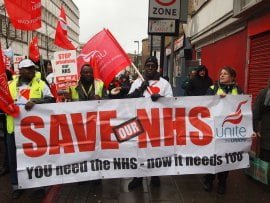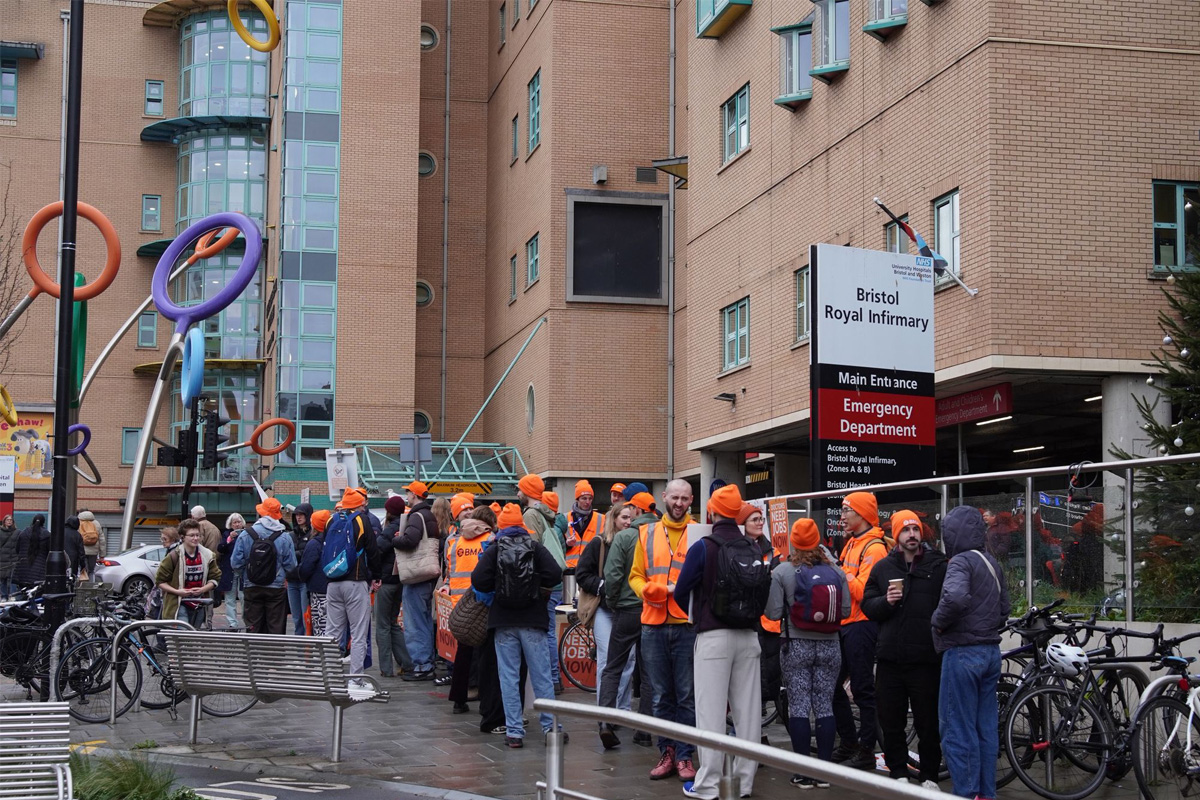We publish here a letter from a mental health services worker in the NHS, who outlines the reality of what the Tory election victory, austerity and cuts, and the crisis of capitalism mean for the lives of ordinary people who rely on NHS services.
We publish here a letter from a mental health services worker in the NHS, who outlines the reality of what the Tory election victory, austerity and cuts, and the crisis of capitalism mean for the lives of ordinary people who rely on NHS services.
Working in NHS services is a difficult balancing act. We must offer high quality and compassionate care with ever dwindling resources. We struggle with increasing demand against a backdrop of media scrutiny, demonisation of health trusts, and the ever-present threat of legal action. Few areas of the NHS have felt this more keenly than mental health services.
My colleagues and I work in a wide variety of mental health teams providing psychological support and talking therapies to people from all different walks of life. However, across all our work the damaging effects of austerity – on some of society’s most vulnerable groups – is clear to see.
In our workplace the election results on 8th May were felt like a punch in the stomach. The air of anger and disbelief was palpable, with many staff voicing their concerns. One young team member told me how she had cried all the way to work that morning. She wasn’t the only team member in tears that day.
Amid the hugs, kind words and attempts to console one another, there were discussions of what we could do in the future. It was very clear to me that the fears we had were not for our own jobs but for the lives of the service users we work with every day. Many team members were visibly upset at the prospect of failing the people who use the services we provide.
Those who seek mental health support are often depicted as “fringe elements” with the cause of their difficulties explained away as biological or worse, due to a moral failing. Nothing could be further from the truth. The people in our services did not catch depression like the common cold. They are often poor, unemployed and forced to live in housing not fit for purpose. They have often been denied access to the education and opportunities they deserved. They have been socially excluded and oppressed by a capitalist system which sees no use for them unless they can work 40 hours a week without complaint.
These people now face a double crisis. The new government and their vicious austerity policies promise to not only create a less equal and compassionate Britain, which will reduce people’s mental health, but also an assault via privatisation and cuts on the very services designed to promote positive mental wellbeing.
After the initial shock of the election subsided, discussion amongst my colleagues changed to thinking about what we can do to fight back and protect those we work with every day. One young worker told me, “We are paid to safeguard people at work, but we can’t just do that anymore. We have to think beyond our own job roles”. Throughout the day many of my colleagues came and asked me how to join the union and mental health protest groups. They spoke of wanting to do the best they could to fight back and try to protect the people they work with in any way they could.
Although the re-election of a Tory government was a harsh blow to those working in the NHS, we cannot stand by and feel hopeless. It’s time for NHS workers to fight harder, not only to defend our services and those who use them. We won’t run unsafe services and we won’t let our voices go unheard.






